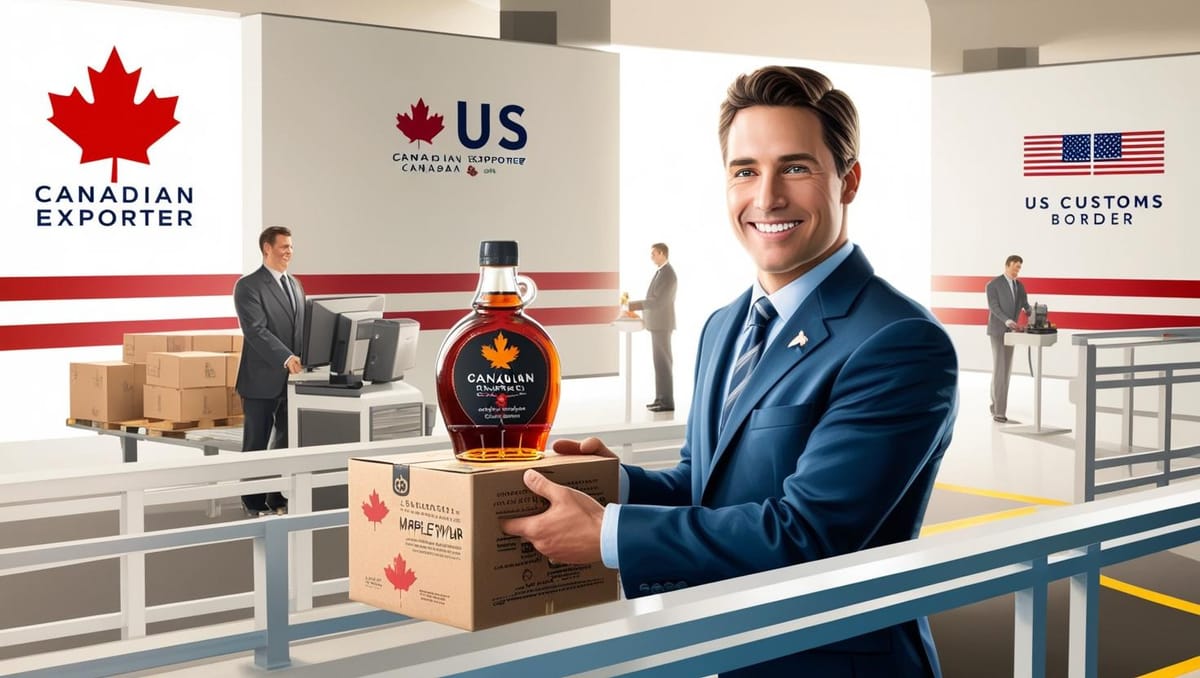
By Elke Porter | Canadian German Business News | April 15, 2025
Vancouver, BC - April 16th, 2025 - Canadian exporters still have a clear pathway to duty-free access to the U.S. despite ongoing tariff challenges. Under the Canada–United States–Mexico Agreement (CUSMA), most Canadian goods can enter the U.S. without tariffs—if they meet the rules of origin requirements.
Why CUSMA Compliance Matters
CUSMA replaced NAFTA in July 2020, streamlining trade among the three member countries. Over 98% of tariff lines and 99.9% of bilateral trade between Canada and the U.S. qualify for duty-free treatment. However, this benefit only applies if goods are CUSMA compliant. That means products must meet specific origin rules and be properly certified before entering the U.S.
How to Stay Compliant
To ensure compliance:
- Identify your product’s Harmonized System (HS) code.
- Review the corresponding product-specific rules of origin.
- Complete a certification of origin. This doesn’t require a special form—it can be on an invoice or other document, but it must contain all required data.
- Use a certificate template to minimize mistakes.
- Give the certification to your U.S. importer, who must claim the tariff preference.
- Request an advance ruling for clarity from U.S. Customs and Border Protection (CBP).
- Consult a certified customs broker in Canada or the U.S. for professional support.
Get Expert Help
Need guidance? Call the support line at 1‑833‑760‑1167. For reliable assistance, consult the CBSA Exporting Guide or visit the U.S. Customs and Border Protection site.
When No Declaration Is Needed for Exports
Not all goods need to be declared when exporting from Canada. These items are called ND (No Declaration) goods, and the Canada Border Services Agency (CBSA) has a full list of them available online here.
Some common examples include:
- Reusable shipping items like cargo containers, pallets, straps, skids, and drums used by international carriers to move goods across borders.
- Items temporarily imported for repairs, like electronics or machinery under warranty. Even if the repair isn’t covered by warranty, you don’t need to declare it if the repair cost is under CAN $2,000.
- Military goods that belong to a foreign country and are used temporarily by a visiting military force in Canada.
These items don’t require a formal export declaration, which helps save time and paperwork. But it’s still important to check the full ND list to be sure your goods qualify.
Final Takeaway
Remaining CUSMA compliant isn’t just a best practice—it’s essential. By understanding your product’s classification and following certification procedures, your business can save on tariffs and avoid border delays. As seen in CanadExport this morning—the newsletter of the Trade Commissioner Service—staying informed and compliant helps you take full advantage of Canada’s trade relationship with the U.S.
#CUSMA Compliance #Canadian Exporters #Duty Free Trade #US Canada Trade #Trade Compliance #CanadExport #International Trade #CUSMA Trade #Canadian US Business News #Elke Porter
Connect with Elke at Westcoast German Media or on LinkedIn: Elke Porter or contact her on WhatsApp: +1 604 828 8788
